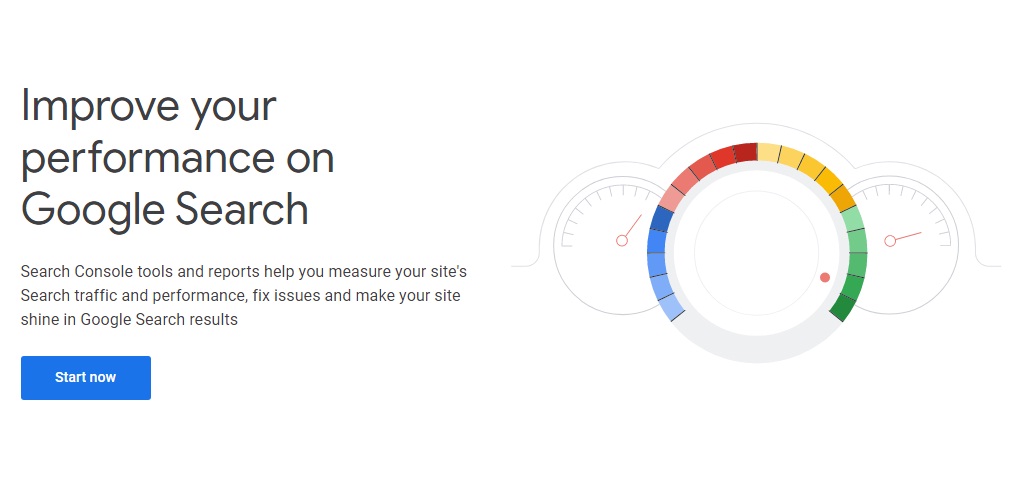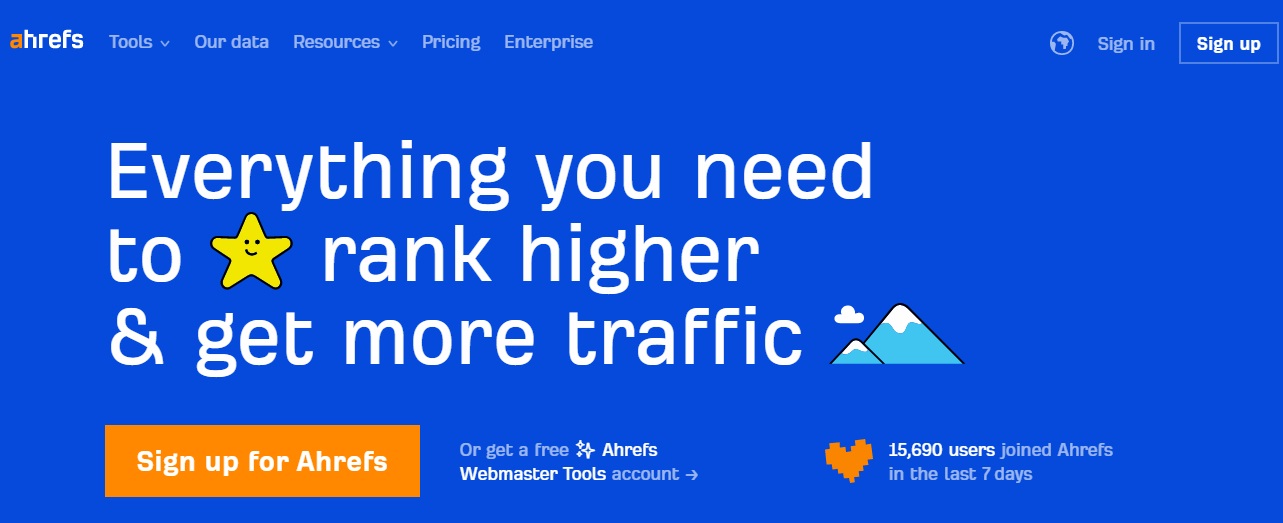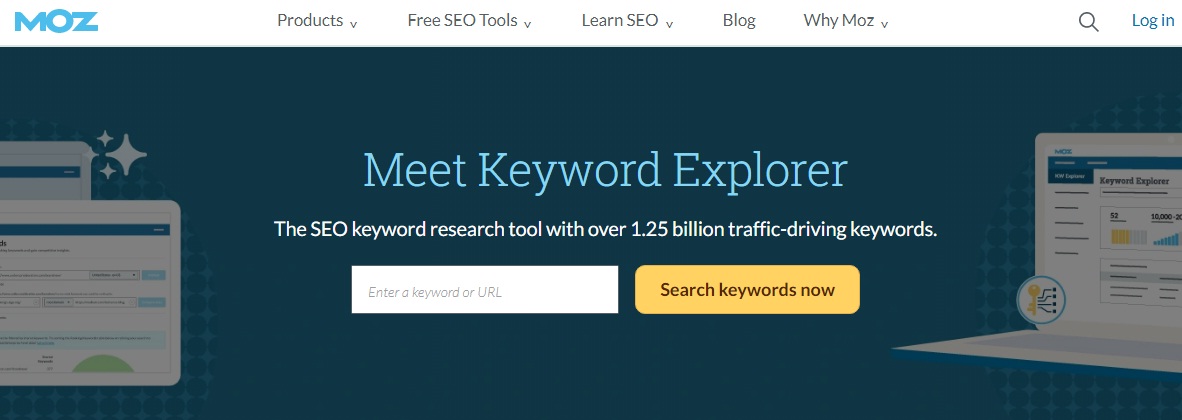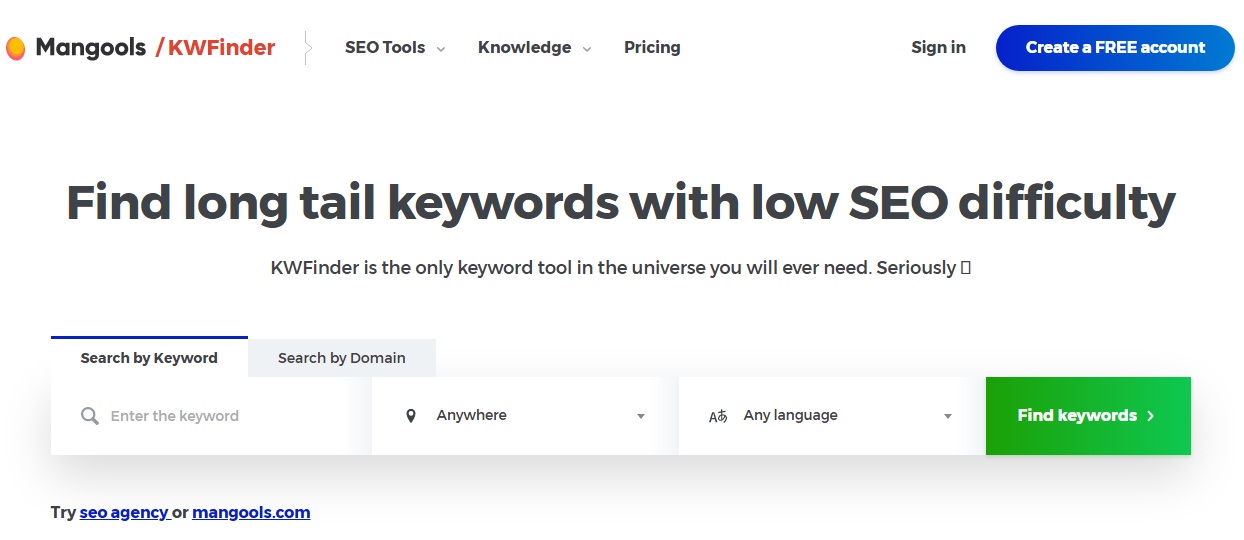Keyword research is an essential component of any digital marketing strategy that can also help with business growth. Sadly, a lot of keyword research tools are outdated or challenging to use. Additionally, selecting subpar tools can seriously harm your company.
Although many people use these tools, very few are aware of how useful and efficient they are for their clients.
To find the best keywords for your business in 2023, you must make sure you select the appropriate keyword research tools.
5 Best Keyword Research Tools 2023
Here is the list of Best Keyword Research Tools:
1. SEMrush
You can find the most searched-for keywords on Google and Bing by using the Semrush Keyword tool, an online tool for keyword research.

With the help of this free keyword research tool, you can learn more about each keyword’s primary competition as well as its volume of searches, traffic, and other statistics.
It is simple to see which keywords other websites have used the most in Google search results thanks to the way that keywords are organized in a visual graph. You can further filter your results based on the preferred time frame.
Before incorporating your own keywords into your content marketing campaigns, you can use this free keyword research tool to perform a competitive analysis of your competitors’ keywords or to optimize your own keywords.
2. Google Search Console

To help website owners and webmasters learn what keywords their website is ranking for and how to improve it, Google provides the Google Search Console tool. It is a free keyword research tool that your company can use to evaluate the effectiveness of its website. This free tool is widely used by businesses to evaluate the effectiveness of their websites. The query tab, which is already selected, is where you can view the keywords.
3. Ahrefs
Finding the ideal keywords for your website can be done with the help of the straightforward yet effective Ahrefs Keyword Explorer tool. You can use it to determine which keywords are most pertinent to your industry and which ones could increase traffic to your website.

If you’re unfamiliar with SEO tools, you won’t have to spend hours trying to figure out how it works because it displays all the keywords associated with a given topic in an understandable manner.
Additionally, it has a ton of helpful features, like negative keyword filtering and keyword suggestions based on previous user searches.
The ability to compare up to 10 different keywords at once in Ahrefs Keyword Explorer is another fantastic feature. This makes it easier for you to see which keyword is more popular than others, which may be helpful if you want to concentrate on just a few key competitors rather than everyone else in the industry.
4. Moz Keyword
Moz is one of the most well-known SEO companies and has been around since the dawn of blogging and content marketing.

Moz touts itself as “the world’s most accurate keyword research tool” and offers 500 million searchable keywords in its extensive keyword database.
Given its established position in the market and its extensive, data-backed research tools, Moz is unquestionably worthwhile using.
Because it is simple to use, the data is reliable, and it gives us a wealth of knowledge about the long-tail keywords we might rank for, we particularly like Moz’s SEO content tool.
5. KWFinder
Searching for a simple SEO tool? Around the world, many professionals entrust KWFinders by Mangools with their productivity. The best SEO tool for monitoring a keyword’s performance and position is KWFinder.

A tool that will assist you in finding long-tail keywords, SERP analysis, and ousting any rivals. Even though KWFinder offers a sizable data set to satisfy seasoned SEOs, it still manages to demonstrate that the data is approachable for novices. It offers a ton of power for the money and is a great fit for designers of specialized websites.
By offering basic and advanced data, KWFinder benefits both newcomers and seasoned professionals. Receiving data on search volume and trends will help you learn about seasonal keywords and hot topics.
Conclusion
In terms of marketing tools, keyword research should be created to assist marketers in identifying patterns in users’ search behavior.
Future keyword research tools will be less dependent on the data points currently used to decipher search behavior patterns.
To more accurately understand a website, its offerings, and the information it conveys, the best keyword research tool of the future will use semantic insights.

Andriy Kravets is writer and experience .NET developer and like .NET for regular development. He likes to build cross-platform libraries/software with .NET.


